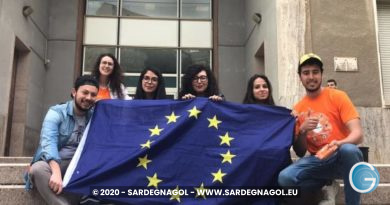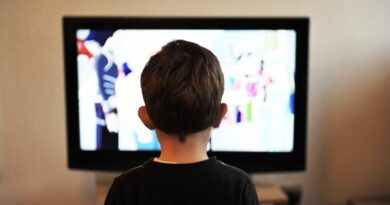¿Sabes quién eres?
La alfabetización audiovisual tiene un poder transformador en la vida de cada persona. Veamos por qué. Actualmente, en la sociedad en la que vivimos donde abunda la incertidumbre, la posverdad y el relativismo es muy común ser superficial y no cuestionarnos sobre las preguntas más importantes de nuestra existencia: ¿Quién soy? ¿A dónde voy? ¿De dónde vengo?
Te estarás preguntando: ¿Qué tiene que ver todo esto con la alfabetización audiovisual? La respuesta es: todo. En este artículo vamos a descubrir por qué es una necesidad formarse en la competencia de la alfabetización audiovisual desde que somos jóvenes y qué nivel formativo existe entre los jóvenes españoles.
Para conocer su importancia, primero tenemos que conocer su definición. Entendemos por alfabetización audiovisual la capacidad de analizar, investigar, discernir, producir y crear contenido audiovisual que se encuentra en nuestro día
a día: noticias, redes sociales, series y películas…
Si saliéramos a la calle a preguntar qué significa “alfabetización audiovisual”, la realidad es que la mayoría de personas no conoce este concepto y cuál es su importancia en la vida personal de cada uno.
El audiovisual tiene la capacidad de poder transformar tu vida a partir de tres niveles: en primer lugar, afecta en la percepción de la realidad mediante las emociones que genera en ti; en segundo lugar, modifica tu escala de valores y
principios y en tercer y último lugar, a la toma de decisiones en tu vida que deriva en tu comportamiento.
Se trata de un proceso inconsciente si se carece de formación, por eso es urgente incidir en las capacidades que te permiten ser competente. Las áreas/parámetros en las que se debe trabajar son: identificar el mensaje que transmite (valores e ideas); aprender los diferentes oficios que trabajan en el sector audiovisual; conocer el lenguaje audiovisual (planos, transiciones, guion); tecnológica (huella digital, manejar herramientas digitales, la cámara, seguridad
en internet…).
Según un estudio realizado por los docentes especializados en educación mediática, Joan Ferrés i Prats, Ignacio Aguaded-Gómez y Agustín García Matilla (2012, pp. 26 – 39), los jóvenes universitarios españoles sometidos a una prueba en la que se medía su competencia mediática fue bastante negativa, ya que no alcanzaron los resultados esperados.
Estas capacidades deberían aprenderse desde niños. Por eso, creemos que debería introducirse una asignatura sobre alfabetización audiovisual dentro del sistema educativo español. Además de formar parte de la educación formal, debería trabajarse en la educación no formal, para que de esta manera sea transversal a lo largo de toda la vida.
Por todas estas razones es por lo que la alfabetización audiovisual está intrínsecamente ligada a tu identidad personal y merece la pena trabajar en ti.
Alba Rosalén, Judit Marsol, Ana Toro, Laura López, Montse Nadal, Sergio Rouco y Paula Vinent
Magazine ICONO14. Vol. 10 Núm. 3 (2012): El reto de la competencia mediática de la ciudadanía. https://dialnet.unirioja.es/ejemplar/318487
Final degree Project – Máster of Cinema, Communication and Audiovisual Industry, Universidad of Valladolid: La educación emocional en el cine. Una
propuesta educomunicativa para la prevención del consumo de alcohol en adolescentes, Paula Vinent Coupeau (2021).
Do you know who you are?
Media literacy has a transformative power in every person’s life. Let’s see why. Nowadays, in the society we live in, where uncertainty, post-truth and relativism abound, it is very common to be superficial and not to question ourselves about the most important questions of our existence: Who am I? Where am I going? Where do I come from?
You may be asking yourself: What does all this have to do with media literacy? The answer is: everything. In this article we are going to find out why it is necessary to be trained in media literacy skills from the time we are young and what level of training exists among young Spaniards.
To understand its importance, we first need to know its definition. We understand media literacy as the ability to analyse, research, discern, produce and create audiovisual content found in our daily lives: news, social networks, series and
films…
If we were to go out on the street and ask what “media literacy” means, the reality is that most people are unaware of this concept and its importance in their personal lives.
Audiovisuals have the capacity to transform your life on three levels: firstly, they affect your perception of reality through the emotions they generate in you; secondly, they modify your scale of values and principles; and thirdly and lastly,
they affect the decisions you make in your life that result in your behaviour. This is an unconscious process if you are untrained, so it is urgent to focus on the skills that enable you to be competent. The area to work on are: identifying
the message to be transmitted (values and ideas); learning the different jobs that work in the audiovisual sector; knowing the audiovisual language (shots, transitions, script); technological (digital footprint, handling digital tools, the
camera, internet security…).
According to a study carried out by teachers specialising in media education, Joan Ferrés i Prats, Ignacio Aguado-Gómez and Agustín García Matilla (2012, pp. 26 – 39), young Spanish university students who took a test measuring their media competence were quite negative, as they did not achieve the expected results.
These skills should be learned from an early age. Therefore, we believe that a subject on media literacy should be introduced into the Spanish education system. In addition to being part of formal education, it should also be taught in
non-formal education, so that it can be transversal throughout life. For all these reasons, media literacy is intrinsically linked to your personal identity and is worth working on.
Alba Rosalén, Judit Marsol, Ana Toro, Laura López, Montse Nadal, Sergio Rouco and Paula Vinent




